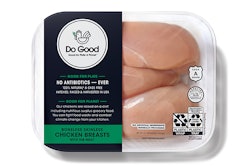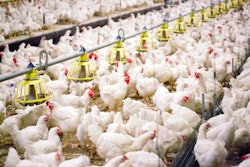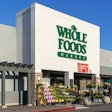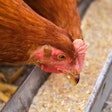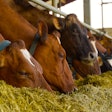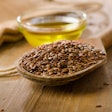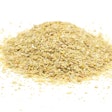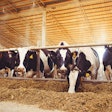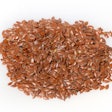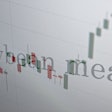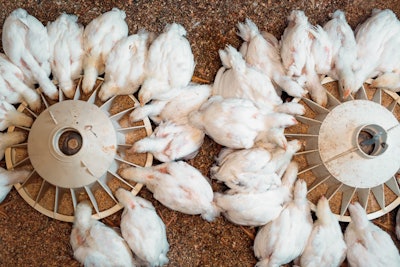
In my blogs throughout July, I would like to discuss five significant points in formulating feeds for broilers under heat stress. Based on my education and experience, I believe the most important aspect of heat stress formulation is fiber in any and all forms that it may exist.
Broilers host a large number of microbes in their large intestine. These microbes thrive on undigested nutrients bypassing the stomach and small intestine digestion process of the animal. Fiber is a class of components that broilers cannot digest and thus the totality of fibers is offered for consumption by the large intestine microbes. There, at the large intestine, we have the process we call fermentation, for a lack of a better term.
Fermentation is the process where bacteria produce specific digestive enzymes and then excrete them into their environment. There, these bacterial enzymes digest large particles of feed – in our case, that would be fiber – and break them down into smaller molecules (for example, glucose from cellulose) that they can absorb. Then, these microbes use the absorbed glucose as an energy source, the same way the animal would have done if it had these fiber-digesting enzymes.
Although we can have an endless conversation about the significance of large intestine microbiota, the point is that fermentation produces heat. And this extra heat is warming up an already heat-stressed animal, without offering much in the form of extra nutrients for growth. Thus, minimizing fiber is a sure way to reduce internally produced heat in already heat-stressed broilers.
Some would argue that only fermentable fibers should be eliminated for this purpose. For broilers, these include mostly hemicelluloses and pectins. Celluloses are only slightly fermentable, whereas lignin is not fermented at all. Here, I will express again my personal preference in that I would rather have as little fiber of any kind as possible. Even non-fermentable fiber has its difficulties under heat stress as it increases bulk density and decreases energy concentration of the feed. And, during a heat-stress period, broilers will reduce feed intake no matter what – and, by doing so they reduce total nutrient uptake. Offering them a dilute feed under such conditions is only going to reduce even further nutrient uptake and eventually growth.
Notice, here, that we cannot eliminate fiber 100% as natural ingredients commonly used in broiler diets contain some fiber. This fiber, in my opinion, is more than enough for normal gut motility. Thus, high-fiber ingredients should be avoided at all costs.


